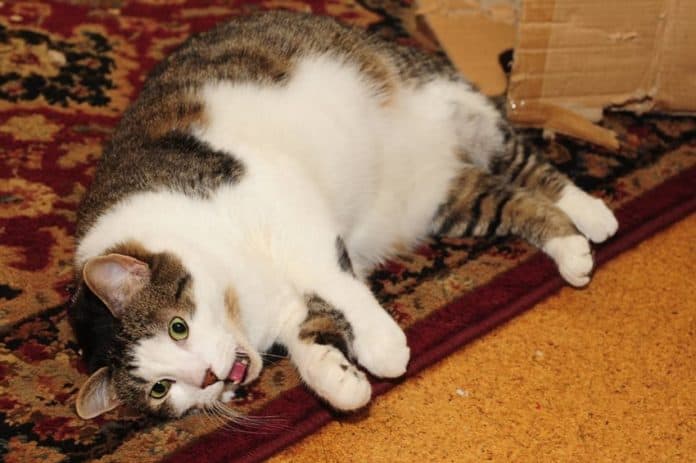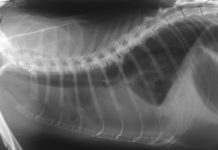So much like us, humans, a blockage in the blood flow through the myocardium or the muscular wall of the heart, is medically called heart attack, or in medical term, myocardial infarction. This is commonly because of the blood clot formation in the heart or in the blood vessels. This may cause premature death of a certain portion of the myocardium. This particular condition is actually rare to happen in both cats and dogs. In this article, we will discuss some more interesting facts about heart attack in cats including its causes, symptoms, prognosis, and treatments. Read on to learn more about these!
What is a Heart Attack in Cats?

Coronary artery blockage and disease are nonconforming in cats because of the way that a body of cat processes the consumed fats. For this reason, heart attack in cats are very rare. When a heart attack really happen, nonetheless, it might be fatal.
Moreover, the myocardium is also known as the muscular tissue, which composes the heart muscle. When a myocardial infarction or heart attack does occur, the myocardium is being cut off from the reception of important nutrients and oxygen coming from the coronary arteries. This commonly takes place because of a blood clot. Without oxygen, the different parts of the heart may prematurely die. This will then cause the heart to become weak or fail to its regular role.
Causes
A heart attack may happen when the blood flow is being cut off from the myocardium. This may either be due to thromboembolism –blood clot or cardiomyopathy –heart muscle disease.
Symptoms
The symptoms of a heart attack commonly appear so suddenly. The symptoms may include the following:
- Sudden death
- Hyperactivity
- Seizures
- Lameness or inability to walk
- Low-grade fever
- Skipped heartbeats or heart palpitations
- Slowed or increased heart rate
- Vomiting
- Loss of appetite
- Collapse or fainting
- Lethargy
- Extreme weakness
Prognosis
The vet may need the complete health history of the cat. This may include any history of heart disease, a fairly accurate time and date when the symptoms first appeared, and a complete list of symptoms. The vet may then examine the cat physically, listen its breathing and heart using a stethoscope, take its blood pressure and pulse, as well as look for abnormalities in its gait, which might signal a blood clot. Further, the vet might also pay attention to whatever signs of muffled heart sounds and heart murmurs there are, which are actually an indication of fluid in the pericardium. This is the sac, which surrounds the heart muscle.
A complete blood count, urinalysis, and biochemical profile may also be done. These laboratories may help the vet in identifying the systemic conditions, which might have caused the attack or assist the vet in ruling out some other conditions, which have the same cardiac symptoms like hypothyroidism.

An echocardiogram -ECG and electrocardiogram –EKG may also be performed in the cat. The EKG will look at the electrical activity and may assist in identifying the abnormal heart rhythms and blockages. On the other hand, ECG is an ultrasound for the heart muscle –this may look for any abnormalities in the pericardium, heart valves, and whatever heart muscle maladies there is. An x-ray of the chest might also be taken to see if there are any irregularities in the cavity of the lung.
If the tests are indecisive concerning to the condition, which caused the heart attack to happen, the vet might want the heart rate of the cat to be monitored for a much longer period of time.
Treatments for Heart Attack in Cats
Medication
The cat may be given some medication in a vet clinic, in order to dissolve a clot and restore the blood flow through the heart. The vet might also prescribe some medications in treating the underlying condition of the cat, which caused the attack to happen. Digitalis, beta-blockers, and carious other anti-arrhythmic drugs may help in slowing down the heart rate of the cat and put them in a proper level.
Pacemaker Implant
Cats who got slow heart rate due to the lost tissues in a heart attack might need a pacemaker installed in them. This may be placed in the abdomen of the cat during surgery. The lead may surgically be attached through the outside of the heart through a small diaphragm incision. This woks by way of sending a small electrical signal into the heart. this may keep the heart beating in a normal manner.
Oxygen Therapy
Cats that have had heart attacks may need to get oxygen therapy in the clinic to make sure that sufficient amount of oxygen is being delivered all over the body. The oxygen may be given to the cat through a nasal cannula or facemask. This may keep on going up until the heart is already capable of functioning properly and delivers oxygen all over the body on its own.









